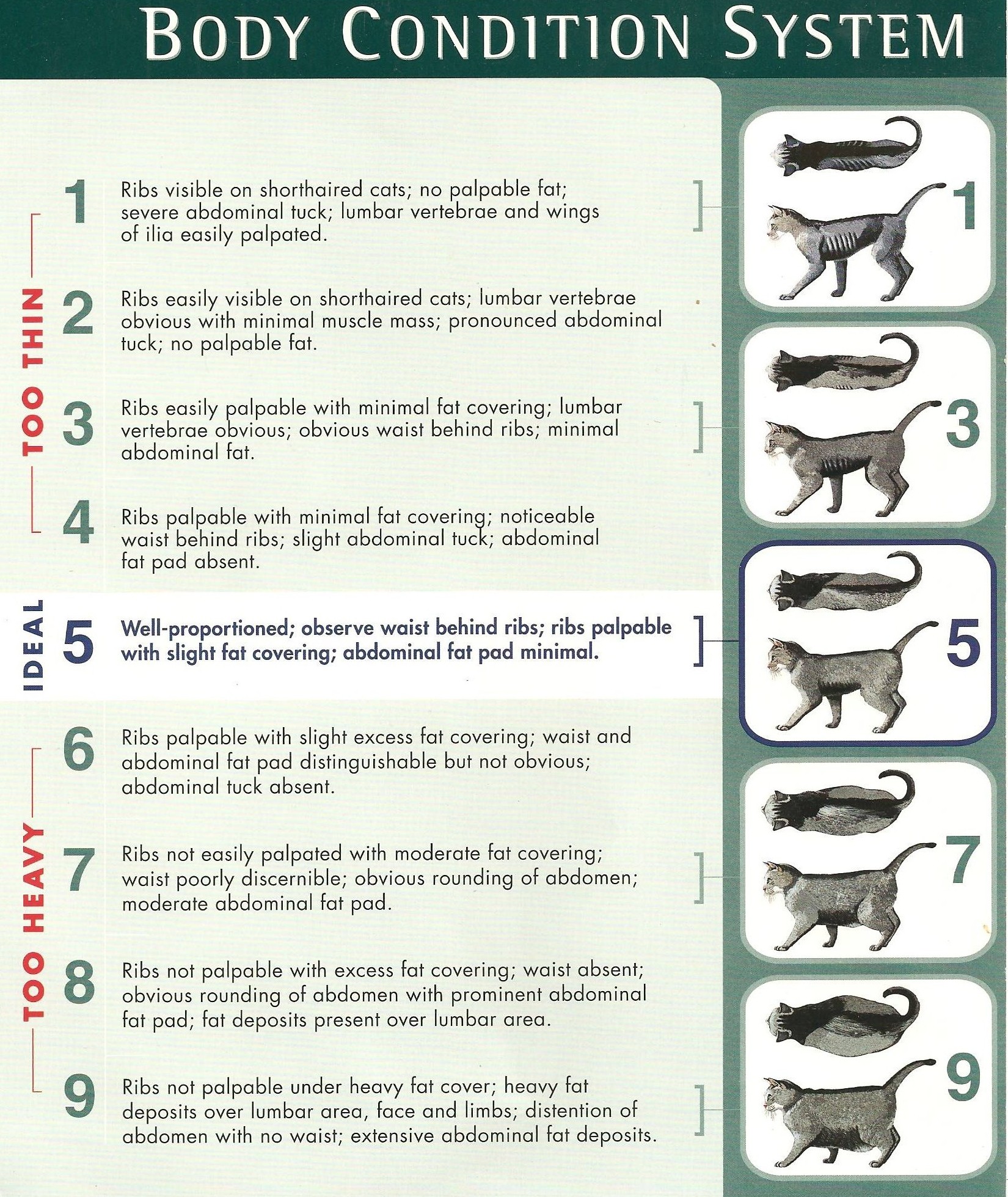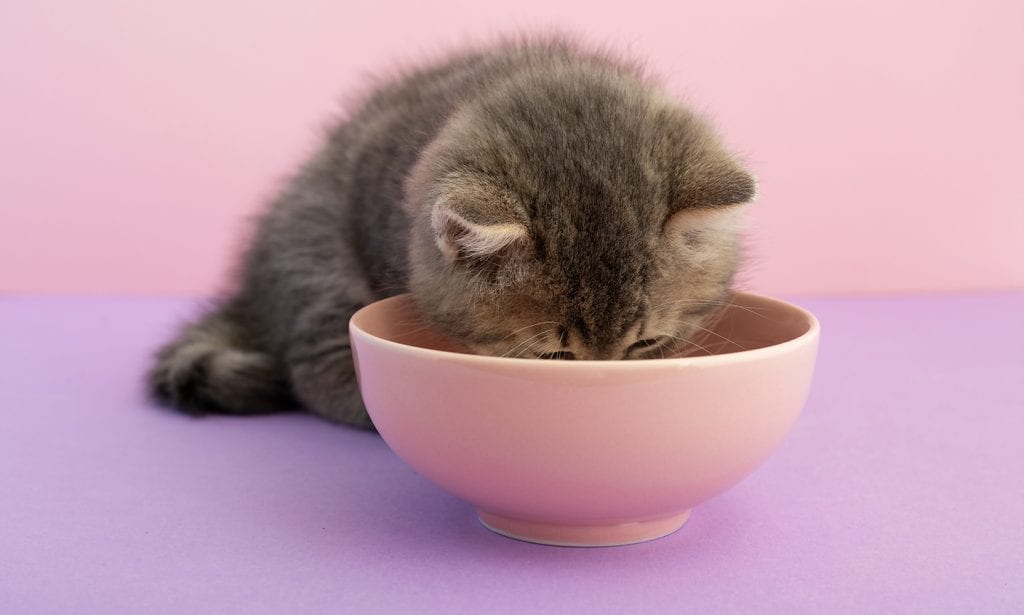Are you a new cat owner wondering what to feed your kitten? Maybe you’ve heard that adult cat food isn’t suitable for kittens under a certain age, but you’re not sure when they can start eating it. Specifically, you might be wondering if a 9-month-old kitten is ready for adult cat food. In this article, we’ll explore whether or not it’s safe for your kitten to switch to adult cat food and what other nutritional requirements they may have.
As a new pet parent, it’s crucial to understand your kitten’s dietary needs. Feeding them the wrong food can lead to health problems down the line. So if you’re unsure if your 9-month-old kitten is ready for adult cat food, read on to learn more about their nutritional requirements and how to ensure they’re getting everything they need to grow up healthy and strong.

Can a 9 Month Old Kitten Eat Cat Food?
As a new kitten owner, you may be wondering if your 9-month-old kitten can eat cat food. The answer is yes, but there are some important things to keep in mind. In this article, we will explore the benefits and potential risks of feeding your kitten cat food and provide some guidance on how to make sure your kitten is getting the nutrition they need to thrive.
Understanding Your Kitten’s Nutritional Needs
Before we dive into the specifics of feeding your kitten cat food, it’s important to understand their nutritional needs. Kittens have different nutritional requirements than adult cats because they are still growing and developing. They need a diet that is rich in protein, fat, and essential nutrients like vitamins and minerals.
When choosing a food for your kitten, look for one that is specifically formulated for kittens. These foods are designed to provide the right balance of nutrients to support growth and development. They typically have higher levels of protein and fat than adult cat food, as well as added vitamins and minerals like calcium and phosphorus that are essential for bone growth.
- Benefits:
- Formulated for your kitten’s specific nutritional needs
- Supports growth and development
- Higher levels of protein and fat than adult cat food
- Added vitamins and minerals like calcium and phosphorus
The Risks of Feeding Your Kitten Adult Cat Food
While it may be tempting to simply feed your kitten the same food as your adult cat, this can actually be harmful to their health. Adult cat food is not formulated to meet the nutritional needs of growing kittens and may not provide the right balance of nutrients.
In addition, adult cat food may contain ingredients that are not appropriate for kittens, such as high levels of fiber or certain types of proteins. These ingredients can be difficult for kittens to digest and may lead to digestive issues like diarrhea or vomiting.
- VS:
- Not formulated for your kitten’s specific nutritional needs
- May not provide the right balance of nutrients
- May contain ingredients that are not appropriate for kittens
- Can lead to digestive issues like diarrhea or vomiting
How to Introduce Your Kitten to Cat Food
If you’ve decided to feed your kitten cat food, it’s important to introduce it gradually to avoid upsetting their stomach. Start by mixing a small amount of cat food in with their regular kitten food and gradually increase the amount over the course of several days.
You may also want to consider feeding your kitten wet food instead of dry food. Wet food is easier for kittens to digest and can help prevent dehydration, which is a common problem in kittens.
| Step | Details |
|---|---|
| Step 1 | Mix a small amount of cat food in with their regular kitten food |
| Step 2 | Gradually increase the amount of cat food over several days |
| Step 3 | Consider feeding your kitten wet food instead of dry food |
Conclusion
Feeding your 9-month-old kitten cat food is safe and can provide them with the essential nutrients they need to grow and develop. However, it’s important to choose a food that is specifically formulated for kittens and to introduce it gradually to avoid digestive issues. If you have any concerns about your kitten’s diet or health, don’t hesitate to consult with your veterinarian.
Frequently Asked Questions
As a professional writer, I have researched and compiled some common questions regarding the diet of a 9-month-old kitten. Below are answers to some of the most frequently asked questions:
Can a 9 Month Old Kitten Eat Cat Food?
Yes, a 9-month-old kitten can eat cat food, but it is important to choose the right type of food. At this stage, the kitten’s digestive system is still developing, and they require a balanced and nutritious diet to support their growth and development.
The best cat food for a 9-month-old kitten is a high-quality, dry or wet food that is specifically formulated for their age and nutritional needs. It should contain all the essential nutrients, including protein, fats, vitamins, and minerals, to support their overall health and wellbeing. It is also recommended to consult with a veterinarian to determine the best food for your kitten’s specific needs.
What Should Be Included in a 9 Month Old Kitten’s Diet?
A 9-month-old kitten’s diet should include a balanced and nutritious mix of protein, carbohydrates, fats, vitamins, and minerals. Protein is particularly important for their growth and development, and should make up a significant portion of their diet.
You can feed your kitten a combination of wet and dry food, or just one type, depending on their preferences. It is important to choose a high-quality cat food that is specifically formulated for their age and nutritional needs. You can also add some treats to their diet, but be careful not to overfeed them, as this can lead to obesity and other health problems.
Can I Give My 9 Month Old Kitten Human Food?
While it may be tempting to share your food with your kitten, it is not recommended to feed them human food. Human food can be high in calories, salt, and fat, which can be harmful to your kitten’s health.
Additionally, some human foods can be toxic to cats, such as chocolate, onions, garlic, and grapes. It is best to stick to a high-quality, specially formulated cat food that meets their nutritional needs, and to consult with a veterinarian if you have any concerns about their diet.
How Often Should I Feed My 9 Month Old Kitten?
A 9-month-old kitten should be fed a small amount of food several times a day, rather than one or two large meals. This helps to keep their metabolism active and prevents overeating.
Typically, you should feed your kitten three to four small meals a day, with a total daily intake of about half a cup of food. However, the amount and frequency of feeding may vary depending on your kitten’s size, weight, and activity level. It is best to consult with a veterinarian to determine the ideal feeding schedule for your kitten.
What Are Some Signs That My 9 Month Old Kitten is Not Eating Enough?
If your 9-month-old kitten is not eating enough, they may show some signs of malnutrition or health problems. These may include lethargy, weight loss, vomiting, diarrhea, and a dull coat.
If you notice any of these signs, it is important to consult with a veterinarian right away to determine the underlying cause and to develop a treatment plan. In some cases, your kitten may require a specialized diet or nutritional supplements to address their specific needs.

In conclusion, it is not recommended to feed a 9-month-old kitten regular adult cat food. Kittens have different nutritional needs than adult cats, and their development can be negatively impacted if they do not receive the appropriate balance of nutrients.
Instead, it is recommended to feed your kitten specially formulated kitten food until they reach one year of age. Kitten food is designed to provide the necessary nutrients for growth and development, including higher levels of protein, fat, and certain vitamins and minerals.
It is important to consult with your veterinarian to determine the best diet for your kitten’s individual needs. By providing your kitten with the proper nutrition, you can help ensure they grow into a healthy and happy adult cat.
